Contents
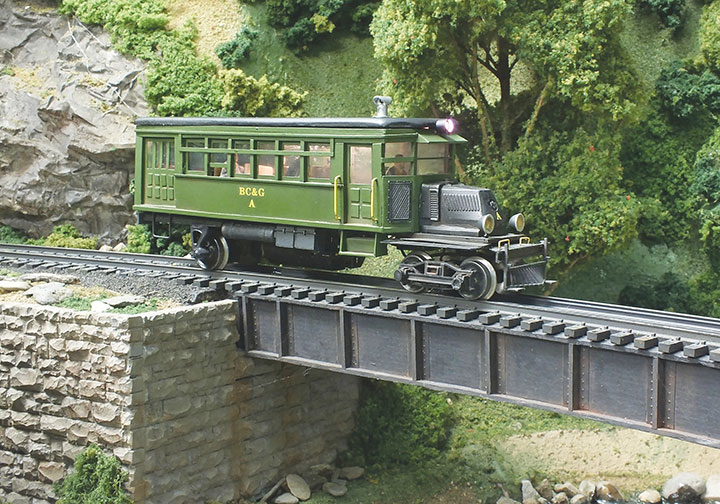
Special Feature
BC&G’S Motor A Mack Railbus
I’m 74 years young and I’ve been modeling the Buffalo Creek & Gauley (BC&G) in S scale for four decades. Over the years I’ve shared quite a bit of my BC&G modeling through the pages of Narrow Gauge & Short Line GAZETTE and other modeling publications. I enjoy putting together the stories of how I research and create models of the rolling stock and structures of the BC&G, a fascinating, but rarely modeled West Virginia short line. If nothing else, writing articles for publication is a way to preserve the BC&G story for future modelers.
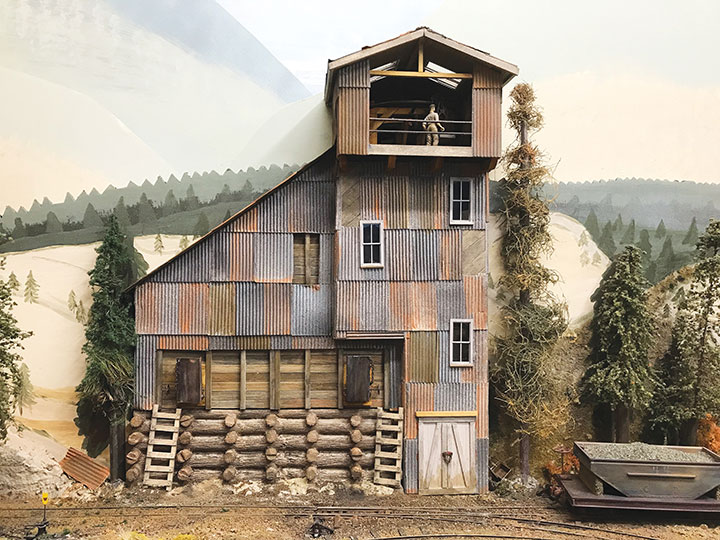
Feature
Fun With Foamcore
I model in 1:32 scale, about 3 times bigger than HO so walls and/or material for walls can be heavy. Foamcore as a base, or even as the wall itself, is light weight. But what sets foamcore apart for me is the ability to modify the structures easily, with just an x-Acto knife as they are being constructed. Here, I use my completed aerial tramway discharge building as an example of just how I use foamcore.
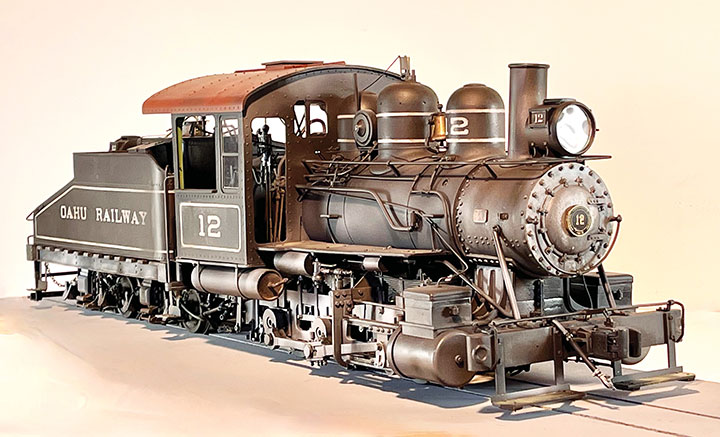
Feature
A Narrow Gauge 1:20.3 Scale Outside Frame 0-6-0
I was looking for a new locomotive project when a photo in Next Stop Honolulu by Jim Chiddix and MacKinnon Simpson caught my attention. A narrow gauge outside frame switch engine! Oahu Railway & Land Co.’s #12 is the kind of locomotive I like to build—a little bit different—something not seen on the more familiar Colorado narrow gauge lines.
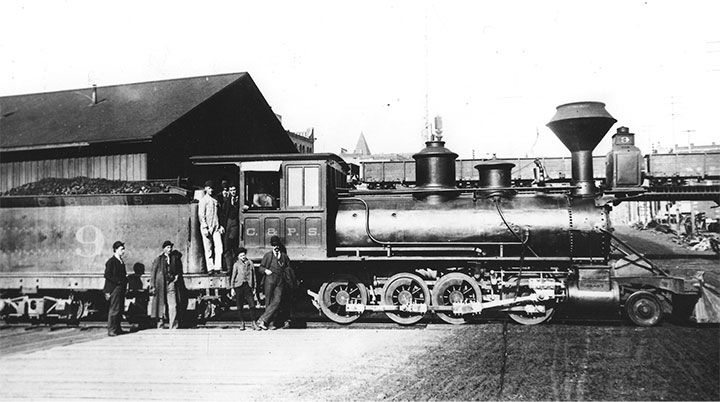
Feature
Locomotives of the White Pass & Yuko Route
It is no coincidence that the White Pass & Yukon Route’s slogan is “The Scenic Railway of the World.” If you have managed to visit the WP&YR, you understand that slogan. The history as told by the locomotives of the White Pass is just as spectacular. Part 1 was in the March/April issue and covered the history of the White Pass locomotives numbers 1/51 and 2/52: the first locomotives in Alaska. Here in Part 2, I will cover the history of the White Pass number 3/53, another early locomotive of the line and its D&RG connection.
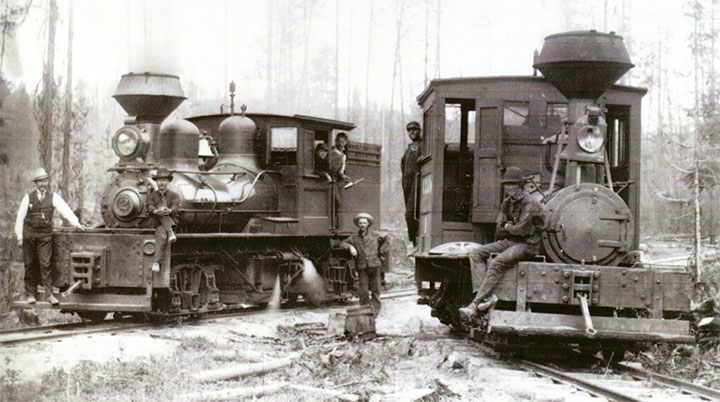
Feature
The Narrow Gauge Consolidated Lumber Company Railroad at Elk, Washington
The 3-foot gauge Consolidated Lum-ber Company railroad at Elk, Washington, in Eastern Washington, about twenty-five miles north of Spokane, was known for its longevity (at least as far as narrow gauge logging railroads are concerned) and for reportedly owning the oldest Shay locomotive in the West. Originally started in 1902, and changing hands in 1916, it lasted until 1932, after reaching a length of some 25 miles. It operated with four two-truck Shays, 60 logging cars, 8 flatcars, at least one boxcar, a moving car, a track layer, a caboose, and 3 speeders.
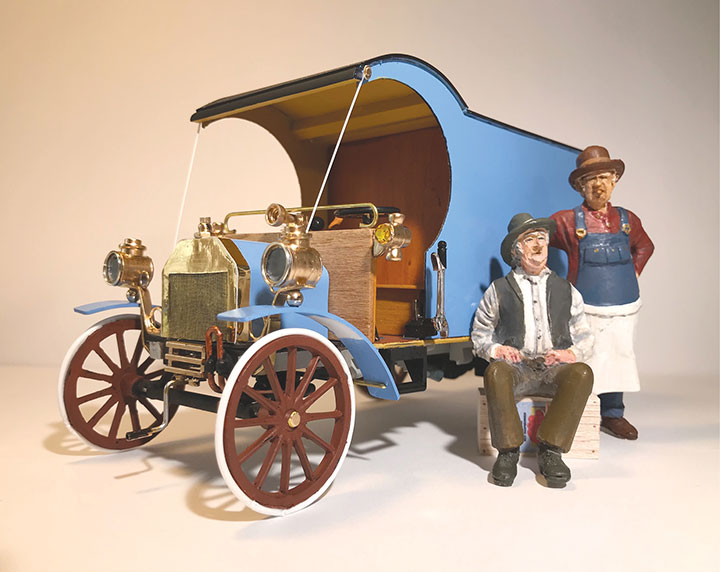
Feature
Scratchbuilt Vintage Trucks
Our Florida club has a large traveling G-scale layout for displays and demonstrations with a time frame in the very early 1900s. It’s difficult to find correct era vehicles, so I scratchbuild vintage trucks and cars for the layout. These are not exact models, but “sort of” copies. Most of our visitors can’t tell a Model T from a Sears Runabout, and yes, Sears really did sell their own cars. All my models are made with bits and pieces from my scrap junk box. After checking photos and articles on the internet, I typically pour out some bits on my workbench and just study them. Invariably I find all kinds of useful shapes and set them aside.
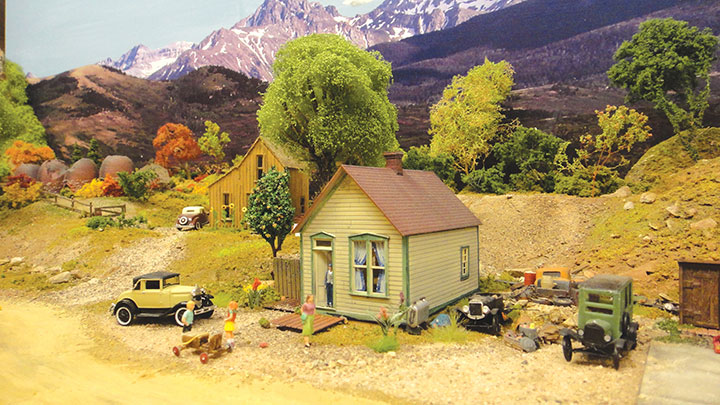
Feature
Layout Improvements: Add a Porch to a House
I always say that a porch is to a house what a nose is to a face. Sure, there’s a humorous wrinkle to that statement, and yet I’m making a point. The porch does much to impart character to a house. In the prototype world, porches are modified more often than any other feature. Sometimes porches are shortened; sometimes they’re lengthened. Sometimes porches are torn off com-pletely. Sometimes they are added where no porch had been. On still other occasions, porches are closed in to make additional rooms. We can make any of these modifications to our kit houses to give them unique character.
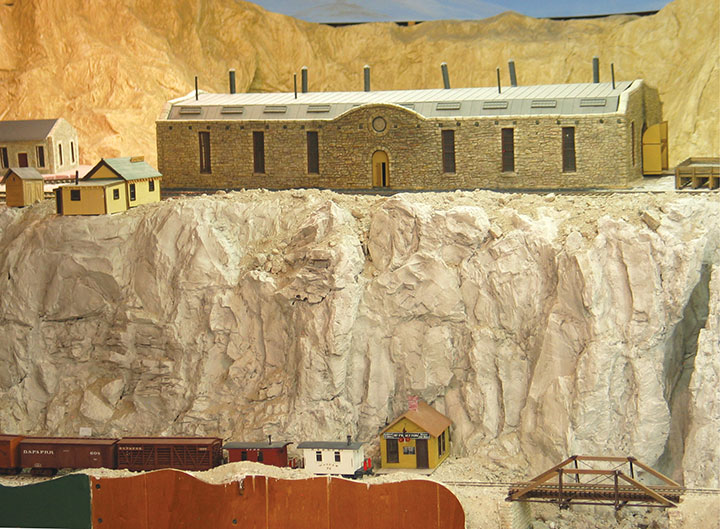
Feature
The Chalk Cliffs On My 0n3
Those who like Colorado narrow gauge railroads are very familiar with the spectacular scenery the little trains traveled through. The Denver, South Park & Pacific had an area that was not well known as a spectacular location, but the Chalk Cliffs are quite interesting in their own way. The Chalk Cliffs are a geological formation located in Chalk Creek Canyon on the way to St. Elmo and the Alpine Tunnel. Although they appear to be composed of white chalk, they are actually an unusual deposit of feldspar, a form of granite which turns to clay when combined with water. In heavy rain, the cliffs erode, and the resulting wet clay slides down and often covers the two-lane highway in spots.
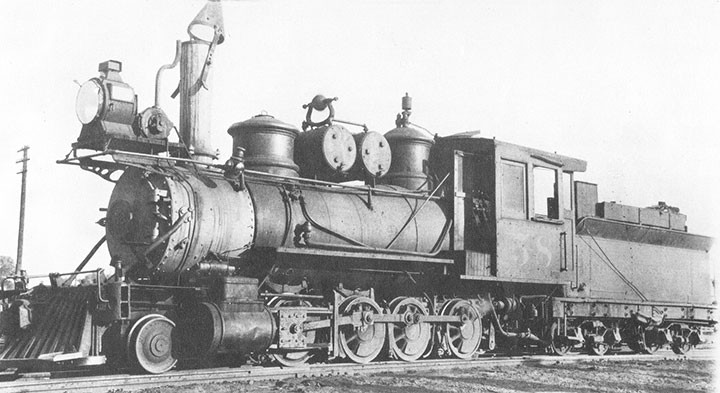
Feature
Bass Bashing in Sn3
This project started several years ago while visiting an old friend, Don Dass. Don is an extremely accomplished modeler who once ran a business working on brass models for others. After working on many models, including a sizeable fleet of customized Sn3 Colorado & Southern models of his own, his interests had moved to ship building. However, Don had one last project that he wanted completed. He had collected an Sn3 C&S Overland model and a pile of parts as the starting point for creating C&S #58. He wanted this model to match a photo of the locomotive in 1915. During that visit, Don asked me to finish that project for him. Over the years we had collaborated on other projects and helped each other many times, so I was happy to take on this project for Don. What I didn’t know at the time was that this would be the most challenging project I’d ever attempted.
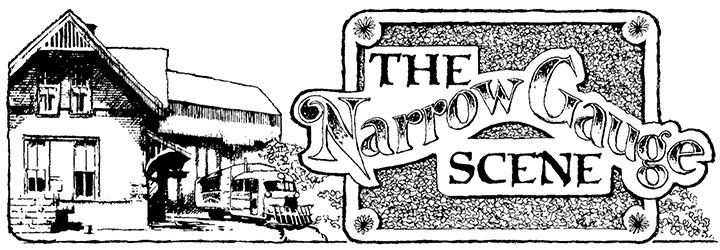
The Narrow Gauge Scene
42nd National Narrow Gauge Convention
Before Covid-19 disrupted our lives, I described, on occasion, things to do at the upcoming National Narrow Gauge Convention, (NNGC). Last year, I did not do so because of the lingering uncertainty of Covid restrictions, but this year, barring last minute developments, things look positive for business as usual, or almost as usual. I am also happy to report that last year’s NNGC at Hickory went well albeit to a smaller than normal crowd.
